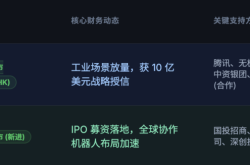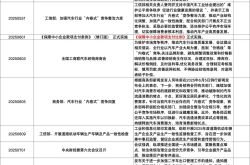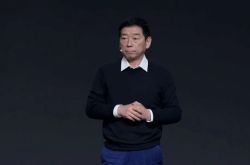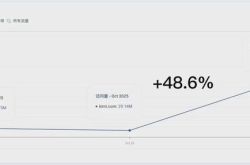Huawei after the '5G standard voting scandal', Lenovo sues ZTE in the UK
![]() 10/31 2024
10/31 2024
![]() 579
579
"Difficult to understand but respectful."
This is ZTE's first response on the morning of the 30th to Lenovo's lawsuit against ZTE for patent infringement in the UK. ZTE stated, "We have always respected the legal actions taken by any company within the legal framework, but we are deeply regretful about Lenovo's actions." ZTE added, "We find it difficult to understand Lenovo's decision to file a lawsuit in the UK, but we respect it nonetheless."
In fact, this patent infringement dispute has been brewing for several days. According to widespread media reports, Lenovo filed a lawsuit with the High Court of England and Wales (EWHC) on October 21, 2024, accusing ZTE of patent infringement under case number HP-2024-000038.
Up to now, more information about this case, including the patents involved and details of the claims, has not been released. Lenovo has also not provided further clarification on the lawsuit.
Why sue in the UK when both are Chinese companies
However, from ZTE's official response, one can roughly trace the background of this lawsuit: ZTE and Lenovo have been negotiating patent licensing issues for several years. As the patent holder, ZTE has advocated for its legitimate rights and interests, proposing reasonable compensation based on its own R&D and innovation, while also hoping to resolve disputes between the two parties through efficient and reasonable means. Furthermore, considering that Lenovo is also a Chinese company, ZTE has refrained from taking any legal action beyond negotiation.
In other words, according to ZTE's statement, this lawsuit is Lenovo's unilateral breach of the tacit understanding and disregard for years of negotiation efforts. Lenovo has chosen to file a lawsuit in the UK to increase its bargaining power in the negotiations.
This raises the question of why Lenovo, as a Chinese company, chose to sue ZTE in the UK rather than resolve the issue domestically. Based on currently available information, Lenovo may have the following intentions:
Firstly, Lenovo, especially its mobile phone division, cannot bypass ZTE's "patent wall." Kaiyuan Securities points out that ZTE ranks among the top in global patent layout and continues to focus on R&D. In 2023, the company invested 26.783 billion yuan in R&D, an increase of 14.34% year-on-year. By the end of June 2024, ZTE had accumulated over 90,000 global patent applications and 46,000 global patent grants. This strong underlying R&D capability continuously empowers various products and solutions, potentially enhancing the competitiveness of its flagship products.
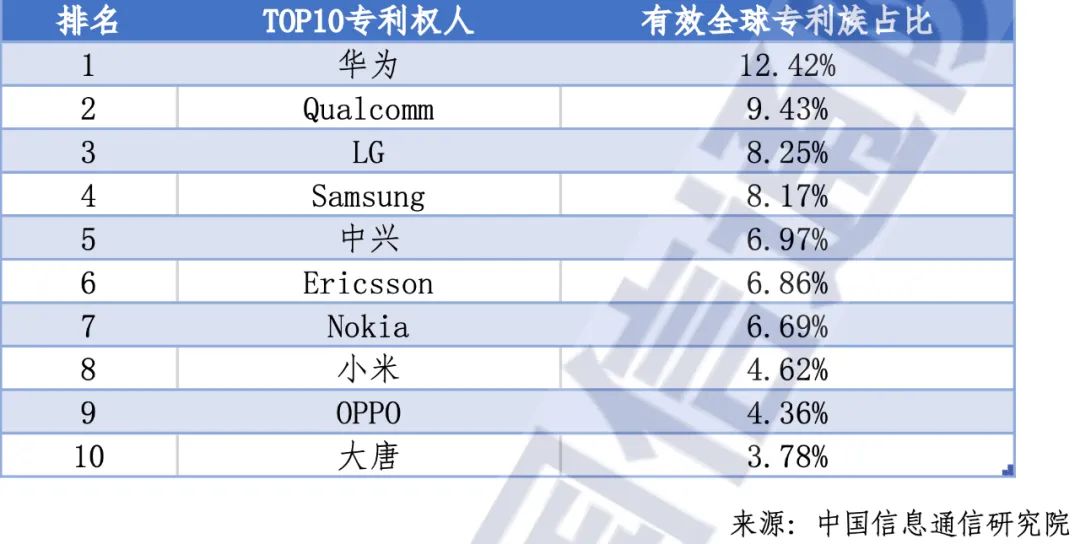
ZTE also mentioned in its official response that it "ranks among the top globally in terms of the number of patents held, and its share of 5G standard-essential patent declarations consistently ranks among the top five globally." This ranking is based on the "5G Global Valid Patent Families" list published by the China Academy of Information and Communications Technology (CAICT), where Huawei ranks first globally, ZTE fifth globally, and second in China. As for Lenovo, its share of 5G standard-essential patents does not rank in the top ten.
It is reported that several mobile phone manufacturers have already reached patent licensing agreements with ZTE, both domestically and internationally. Although Lenovo mobile phones have long been classified as "others" in the domestic market, they still rank eighth globally with a 5% market share. In particular, in North America, Lenovo-Motorola has become the third-largest mobile phone brand in the United States, according to the latest data.
It is conceivable that as one of the top eight mobile phone manufacturers globally, Lenovo cannot bypass ZTE's 5G standard-essential patents and must face the situation of paying patent royalties to multiple patent holders.
Secondly, the UK's litigation rules may be favorable to Lenovo's claims. Sources close to the matter indicate that Lenovo has already achieved positive results in previous lawsuits against IDCC and Ericsson. Public information shows that in recent years, Lenovo has been involved in disputes with SEP (Standard Essential Patent) holders such as IDCC (InterDigital) and Ericsson in courts in the UK, the US, Germany, and other countries, with the UK courts emerging as Lenovo's preferred venue for resolving SEP disputes.
In March 2023, the High Court of England and Wales ruled in favor of InterDigital in its lawsuit against Lenovo, ordering Lenovo to pay a royalty of USD 0.175 per cellular unit for InterDigital's 3G/4G/5G patents. In July of this year, the Court of Appeal of England and Wales upheld the first instance court's determination of retroactive sales and interest, while exercising its discretion to increase the per-unit license fee from USD 0.175 to USD 0.225. However, both the adjusted and unadjusted global patent royalty totals are closer to Lenovo's proposed price than to InterDigital's claim of USD 337 million.
Based on the above public information, it can be seen that Lenovo often leverages the UK courts' practice of issuing injunctions conditional on compliance with court orders to "force" litigants to accept the UK courts' rulings on global royalty rates. By making the UK courts its preferred jurisdiction, Lenovo has once again provided an opportunity for them to rule on global royalty rates.
In Lenovo's lawsuit against ZTE, there may be a dual purpose: on the one hand, to enforce UK patents, and on the other, to make a FRAND request for cross-licensing. Notably, three of the six defendants in the case are distributors of ZTE products, further indicating that Lenovo's intention may extend beyond merely enforcing patents and include negotiating cross-licensing terms with ZTE.
Thirdly, Lenovo prefers not to cause too much controversy domestically with this lawsuit. If viewed purely as a commercial act, Lenovo's lawsuit is aimed at reducing patent fees. Seeking the most favorable jurisdiction for a given claim is somewhat understandable. ZTE's assertion that it seeks "reasonable compensation for its R&D and innovation" indicates that its demands are in line with industry norms and consensus.
Both parties have their respective demands based on their respective businesses. However, Lenovo has deviated from the mainstream views of Chinese companies on more than one occasion in recent years and has had frictions with domestic manufacturers. The most notable example is the "Huawei 5G standard voting scandal." Back in 2016, Lenovo was widely questioned for not supporting Huawei's proposed 5G technology standard at a 3GPP meeting. At the time, Lenovo chose the LDPC technology solution and firmly voted for the Polar code solution in the second round of voting.
This decision sparked widespread discussion and controversy, even prompting Huawei's founder Ren Zhengfei and Lenovo's founder Liu Chuanzhi to personally clarify the situation.
Given the current situation, Lenovo has not yet commented on the lawsuit or ZTE's response, but one can speculate that Lenovo does not want to escalate the matter further and is simply waiting for a favorable court ruling to impose constraints on patent holders.
Lenovo's "infighting" stirs up controversy once again
From the perspective of both companies being Chinese, this lawsuit can be seen as using external forces to adjudicate their commercial disputes. Put simply, it's like brothers fighting among themselves and inviting an outsider to act as a referee. This has prompted many industry insiders to comment on social media platforms, questioning why they would resort to an outsider when they could resolve their differences internally. Furthermore, a closer examination of the lawsuit reveals several unreasonable aspects.
For example, the UK is not a major market for either company, making it an unsuitable venue for the lawsuit. According to Lenovo's financial data released in August 2024, Europe, the Middle East, and Africa combined account for only 25% of its total revenue, while China alone accounts for 22%. In terms of mobile phone business, Lenovo's shipments to the UK in 2023 accounted for only 1.52% of its total shipments, indicating that its primary market remains domestic, with the UK classified as "others."
Similarly, ZTE's domestic revenue accounts for 68.91% of its total, making the UK far from its primary market. If one were to speculate on a rationale, it could be that Lenovo is not subject to sanctions in European and American markets, while ZTE is at a disadvantage due to well-known reasons. By filing a patent lawsuit in the UK, Lenovo aims to strengthen its bargaining position in subsequent licensing negotiations.
Furthermore, as an extraterritorial court, the UK courts cannot fully consider the realities of the Chinese communications market, as domestic adjudicatory authorities can. If this case sets a precedent, the practical factors in China's standard-essential patent relief will be increasingly ignored by rights holders. This could lead to more overseas lawsuits targeting Chinese communications entities while ignoring China's market realities, causing losses to the development of China's communications industry.
In fact, China has ample experience in handling global standard-essential patent disputes. Moreover, China has established jurisdiction over global licensing disputes involving standard-essential patents through typical cases. For example, in the case of Huawei vs. Xiaomi involving standard-essential patent infringement, the National Intellectual Property Administration (NIPA) conducted administrative mediation and guided both parties to conduct multiple rounds of negotiations on patent licensing, including standard-essential patents, ultimately leading to a cross-licensing agreement on September 14. This demonstrates the efficiency, professionalism, and authority of China's administrative adjudication procedures for major patent infringement disputes.
Additionally, in the case of OPPO vs. Sharp, the Supreme People's Court clarified that jurisdiction over standard-essential patents should consider factors such as the primary place of implementation, main place of business or revenue source, place of patent licensing negotiations, or place of patent licensing contract signing. Chinese courts can rule on licensing conditions for standard-essential patents globally.
In the case of OPPO vs. Nokia, the Chongqing First Intermediate People's Court made a precedent-setting ruling on cumulative 5G royalty rates, clearly adjudicating the global patent licensing conditions for both parties.
These efforts have significantly contributed to the development of intellectual property protection in China. However, against the backdrop of industry efforts to establish China's image in intellectual property protection and enhance its international discourse power, Lenovo's decision to abandon China's established domestic system and seek overseas remedies could potentially set a poor precedent for dispute resolution in China's standard-essential patent field.
In simple terms, patent disputes between Lenovo and ZTE, as two Chinese companies, should be resolved first in China. Using an inapt analogy, it would be akin to two siblings arguing and instead of seeking resolution from their parents, they choose to have the dispute adjudicated by a stranger. This undermines the authority of their parents. If such situations occur frequently, it could damage the reputation of the entire family in the eyes of onlookers.
From a broader perspective of Chinese companies going global, Lenovo's lawsuit against ZTE for patent infringement in the UK, while seemingly a patent dispute, is in fact a commercial competition tactic and strategy. It aims to gain time and space to restrict the development of competitors in certain technology areas, thereby securing potential economic benefits.
A similar scenario can be found in the popular TV series "The River." In one episode, the protagonist Song Yunhui becomes embroiled in a patent dispute with a foreign enterprise, which attempts to restrain the Chinese company through legal means. Song Yunhui's strategy is to fearlessly face the lawsuit and actively respond. Prolonged litigation is actually beneficial for the Chinese side, as Song Yunhui openly shares with the foreign enterprise. After weighing the pros and cons, the foreign enterprise chooses to immediately cooperate with the Chinese side rather than dwell on minor details.
Similarly, Lenovo employs litigation and negotiation tactics to delay licensing agreements. For example, Lenovo's negotiations with InterDigital spanned 16 years, from 2008 to 2023, when they finally reached a partial licensing agreement, with some patents still subject to litigation. Lenovo's negotiations with Ericsson have been ongoing since 2008 and have yet to yield a licensing agreement.
However, this has not prevented Lenovo from conducting business while the patent licensing negotiations are ongoing, while patent holders may not receive reasonable compensation for their investments.
As Chinese companies expand globally, competition is no longer limited to products and markets; intellectual property has also become a powerful tool. This underscores the need for Chinese companies to plan ahead, secure legal protection for their patented technologies, maximize their rights and interests, and compete fiercely in overseas markets.
In ZTE's words, it respects the value of intellectual property, honors others' innovations, protects its own, and insists on promoting a reasonable, fair, and equitable patent licensing system. It also advocates for a positive cycle of technological innovation through reasonable compensation.
However, if this sword is wielded in the manner of Lenovo, resulting in infighting rather than mutual support, it could lead to a very different evaluation and requires deep contemplation.
References:
Daily Economic News, "ZTE Responds to Lenovo's Overseas Lawsuit for Patent Infringement"
Jiemian News, "What Impact Will Lenovo's Lawsuit Against ZTE in the UK Have?"

